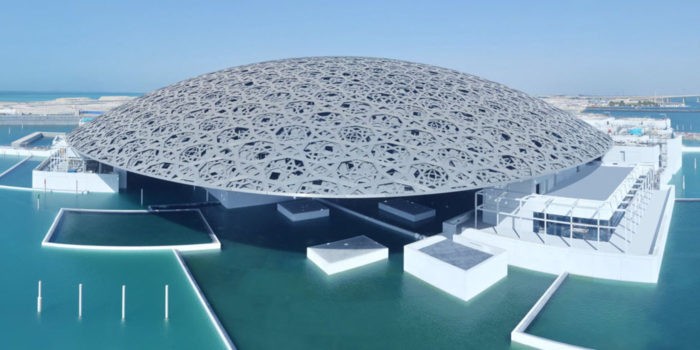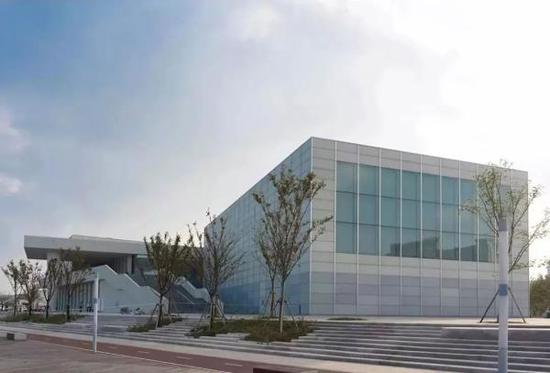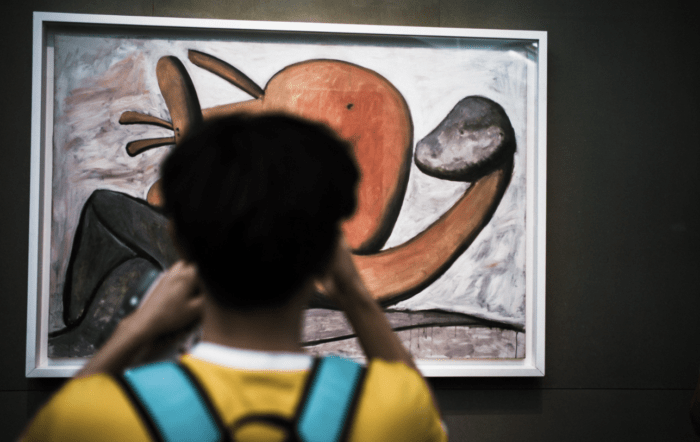Museum Diplomacy – If people cannot come to France to visit the museums, why not bring the museums to them?
On March 6, 2007, a news released by major French media gradually subsided a debate that lasted for nearly half a year – the French Ministry of Culture and the UAE government signed a « century contrat », and France will help UAE, within the framework of its planned « Happiness Island » tourism development project in Abu Dhabi, build a modern museum with a total area of 24,000㎡, and the contract involves a sum of up to 1 billion euros. Such « high consumption » has brought « special enjoyment » to the Persian Gulf: the UAE can put up the « Louvre Museum » brand for its museum, use it for 30 years, and pay the Louvre 400 million euros for this; The French side is responsible for providing four exhibitions to the UAE every year for 10 years. In addition, the French side will lend the exhibits to the « Louvre Abu Dhabi » every two years for 10 years, each time not exceeding two years, and the UAE side must pay the French side 200 million euros during this period. In order to implement the projects, the French Ministry of Culture has established a specialized agency consisting of several major museums (the Louvre, Versailles, Musée d’Orsay, etc.) and the National Federation of Museums to provide advice on the projects covered by this contract.
This contract has caused an uproar in France. Many people are against this contract, and more than 5,000 signed a petition, including many art historians and museum directors. In their points of view, the masterpieces of art treasured in museums are valuable cultural heritage, and it is the duty of the state to its citizens to protect these heritages and display them to the public. Therefore, the 30-year-long « Louvre Abu Dhabi » project has touched this principle – due to the long-term residence of some works of art in other countries, the right of the French public to access the country’s cultural heritage has been greatly violated. They believe that cultural exchange should maintain its purity, and the commercialization of this project is unacceptable. Even if cultural exchange is to serve diplomatic purposes, it does not mean such a utilitarian transaction, which obviously desecrates the French cultural heritage.

Facing these oppositions, the director of the Louvre and his supporters insisted that the museum should open its doors as much as possible and approach the public with unprecedented openness. The collections of museums are the common property of mankind and should be given the opportunity to be appreciated by more people in the world. This kind of cooperation with foreign countries in the form of long-term rental of exhibits is an effective way to fully show the rich cultural heritage of France to the world. While promoting French culture, you can also get a certain amount of economic income and diplomatic returns, which is really a good thing that serves multiple purposes. The French Ministry of Culture said: This plan is only a measure of France’s cultural opening to the outside world, not a commercial project, but a government action.
We can see that the internationalization of museums have already begun, and this is probably for the following reasons:
- With economic globalization, the culture moves with it.
Economic globalization has had a huge impact on global politics, culture, life and other fields. Under the increasingly fierce international situation of competition in comprehensive national strength, culture, as the core of a country’s soft power, has gradually penetrated into the political and economic fields, and its characteristics of peace and affinity make it the most easily accepted and recognized way in international exchanges. Cultural exchanges are more frequent and extensive than ever, and in more and more forms. France, as a big and powerful country in culture, is naturally unwilling to lag behind the United States (with Hollywood) and will do everything possible to strengthen its own voice in the field of world culture, to ensure its protagonist’s position on the global cultural stage. Also, the Louvre is not the first museum to set up branches abroad.
- Diversification of museum function.
Nowadays, the existence of museums is not only to allow visitors to experience the culture and history represented by the collections, but also to serve as a means of cultural communication and export. Lectures, forums, seminars, videos, VR… A variety of methods can better allow people to participate in person.
Following the footsteps of The Louvre Abu Dhabi, two other French museums have their new branches in China: The Centre Pompidou in Shanghai and Musée Picasso in Beijing.
In 2019, French President Emmanuel Macron attended the opening ceremony of the Pompidou Shanghai. The new museum, named « Pompidou x West Bund Project », is located in the newly completed West Bund Art Museum. The gallery is clad in emerald glass and consists of three galleries connected by an atrium. Pompidou called the project the « largest cultural exchange project in history » between France and China. Compared to the Louvre Abu Dhabi, it’s not huge. According to French weekly Le Point, Pompidou director Serge Lasvignes said in an interview that the main motivation behind the Shanghai project was to promote dialogue, not profit. Led by an expanding middle class, China last year became the world’s third-largest art market. China also has a growing network of art lovers and professionals including curators, collectors and artists. As a result, in 2019, museums in Shanghai received 8.41 million visitors, an increase of 1.64 million over 2018, which is nearly a quarter more. This is with no doubt a win-win move for both France and China.

In the same year, The Musée National Picasso in Paris announced at the French Consulate General in Shanghai that they signed a 5-year cooperation agreement with Beijing 798 Culture Company, officially launching 798CUBE, a heavyweight Sino-French cultural exchange project. According to the head of Beijing 798 Culture Company, during the five-year cooperation, the Sino-French team will jointly plan to hold 10 different forms of Picasso or Giacometti art exhibitions in Beijing 798CUBE Art Center. Academic research, public education, artwork restoration, audience expansion and personnel training in public cultural venues and other exchange activities. The project had its opening ceremony and the first exhibition in June 2020.

With the covid epidemic from the beginning of 2020, the global economy in almost all domains have suffered a heavy loss, especially tourism. This further proves the correctness of museum globalization, in its impact on communications and economic recovery and development. If you cannot come to visit France, we bring France to you.

